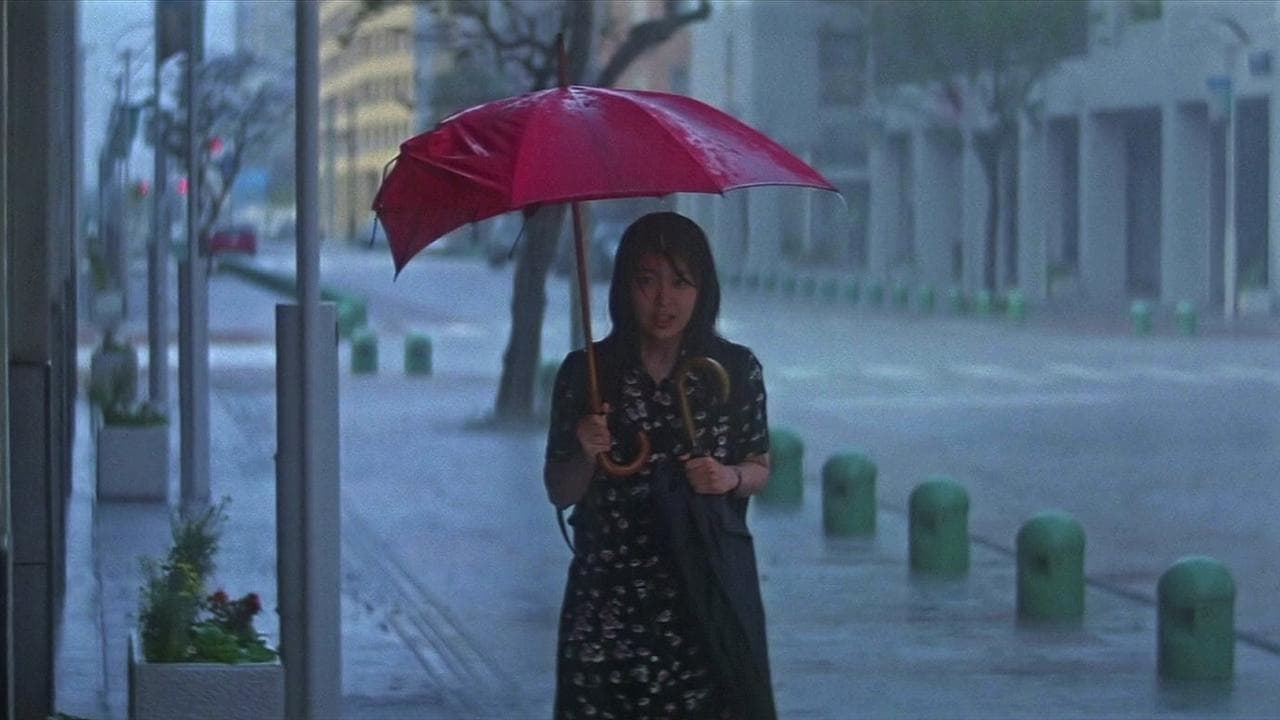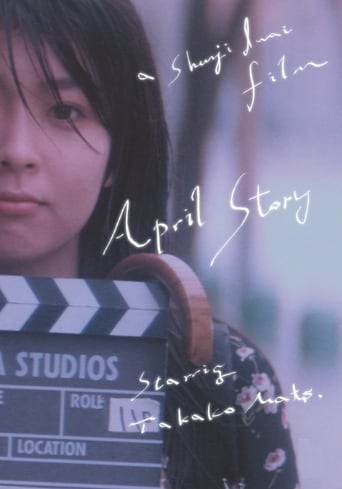

Best movie of this year hands down!
... View MoreWatch something else. There are very few redeeming qualities to this film.
... View MoreGreat story, amazing characters, superb action, enthralling cinematography. Yes, this is something I am glad I spent money on.
... View MoreThis is one of the best movies I’ve seen in a very long time. You have to go and see this on the big screen.
... View MoreThis movie felt like something unfinished. It surely deserved to be developed into something bigger. But what's there is fascinating, sweet, and somewhat unique. The way it portrays the first days of college for a girl who's alone in a big unknown city, with unfriendly and opportunist people, is just awesome. I really felt sorry for this cheerful, shy and friendly girl who couldn't manage to get a decent social relationship in this new environment. The lead actress was really good and always had that "sweet and awkward" aura that's just perfect for the character. Some great scenes in this movie, but who's familiar with the work of Shunji Iwai shouldn't be surprised about that: this guy can pull off memorable stuff.
... View MoreI was very recently exposed to this filmmaker and utterly captivated by another one of his films, so that alone ensures I'll want to see everything by him at some stage. He seems like one to follow and devote serious time to: a vibrant new voice that embraces damaged worlds with the gentle ardor of Zen. He makes the films Mizoguchi ought to have made but for drowning still reflections in overbearing dramatics.This is even more sparsely arranged than that other film. Once more the point is that it's seemingly about nothing, purely episodic life from a teenage girl's journey into young adulthood and love. Once more the point is that there is no solid core to explain from, only glimpses from a floating world. Nothingness permeates, but a sweet, Buddhist nothingness that is pregnant with life.The world is still new that she enters, the mind is clear, fresh. There is a lot of idle perambulation but no vexation. Solitude that is sweet enjoyment of the present moment. Being that is still magnificent in its simplicity.Against this backdrop the smallest gesture rings far and wide with meaning, say a smile beneath a red umbrella for the joy of being able to freely smile or the feeling of being wet but safe. It is the best cinematic Zen I know of.Spontaneous joy without pleasure. A world that makes sense because the senses are open, receptive. Astute viewers will pick up a connection to old landscape compendiums from the Shogunate era, the title of this post is a reference to one; those were intended for tourists passing through Edo, but were the training ground for cinematic perspective, more deeply intended for the travelling eye.On a technical level, I believe this was solely conceived as an exercise where the filmmaker got to work out a few shots and atmospheres he had in mind: spring rains, clear evenings, bird's eye views, calligraphic sweeps, many worlds fleeting from the windows of a speeding train. A lot of that paid off in Lily Chou-Chou, there in a longer form.This is small but full and ripe, a rare thing. I'm even more eager to follow his work.
... View MoreOn first viewing I was reminded how Japanese people often use language not to communicate in words but to hint at deeper ulterior meanings. For example, when Uzuki asks how late the bookstore is open, what she is really asking is, "What are the chances I'll be able to see today the man I am in love with?" I felt that this movie was a lot like literature in that we had the opportunity to fill in a lot of details with our imaginations. With this in mind, the second viewing was a remarkable experience. Check out the group of people for whom the moving van has to reverse for. Here we have what will ultimately be (off screen and after the credits) the happy ending, but we see it implied at the beginning of the movie.The name Mushashino itself (as in both the university and bookstore): It refers to the wide plains upon which Tokyo has been built. Even more than a thousand years ago, in what some say is the world's first novel, "The Tale of Genji," Mushashino was considered a poetic place of exile and romantic yearning.That jarring samurai movie may have been well-chosen as well for its symbolic ramifications. It was about Oda Nobunaga, who was the first person to come close to achieving a unification of Japan until he was assassinated by Mitsuhide Akechi: A story of ambush and treachery, just as what was going on with the creep making moves on Uzuki in the movie theater. But in the samurai movie Oda Nobunaga, through trickery of his own, survived that ambush, as did Uzuki. Her fleeing brings to mind Ieyasu who, in the historical time depicted, rapidly fled that dangerous situation with the assistance of the ninja Hattori Hanzo. So we can even make this part of "April Story" into a kind of ninja movie if we wish, with the protagonist successfully fleeing danger and later establishing a grand unification (with her soon to be lover) of her own. Like the one passing in front of the moving van.Not only the movie theater creep was a threat to her fulfilling her chosen destiny but also the leader of the fly-fishing club who wanted to "catch" her. He even got the hook of a lure into her sweater. But what did he want with her after all? He wanted to use her: "If you get one other person to join our club this reel is yours for free."Here in the U.S. young lovers have been known to write or carve their initials within the outline of a heart. In Japan they write their names vertically under an umbrella, on either side of the "handle." And the color of the umbrella she chose: the Japanese character for crimson can be synonymous for passion.I found that the movie resonates deeply if we apply some attention and imagination.What a pleasure it is to watch it, and the amazing performance of Takako Matsu who expressed so much and so deeply with so few external manifestations. By the way, if anyone wondered about the location, she rides her bicycle over a blue pedestrian bridge that had written on it that it was in Kunitachi in the western part of Tokyo next to Tachikawa.
... View More"Shigatsu monogatari" (aka April Story), is one of those rare films which concentrates deeply on the feelings and personality of a character. Takako Matsu displays brilliant acting as Uzuki Mireno, a university student who experiences life on her own. The film shows the ups and downs of Takako's life at university. Despite the fact that I am an action fan and that the movie has a "strange" ending, this film did not fail to please and entertain me. I highly recommend this film for people into quiet, beautiful and emotional films.
... View More